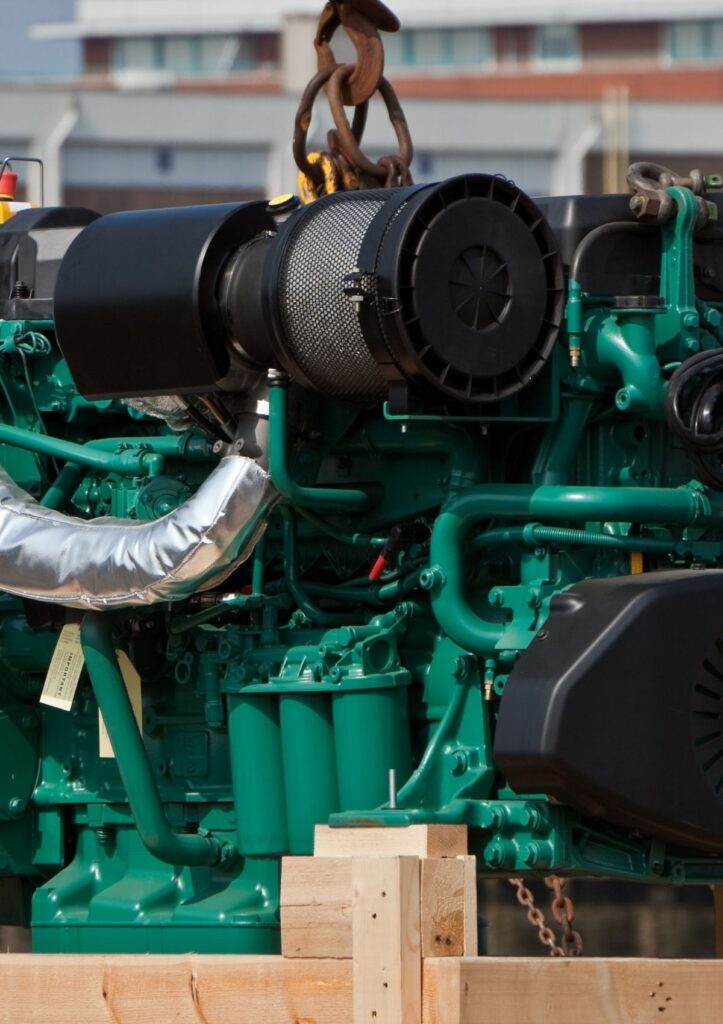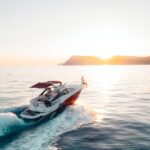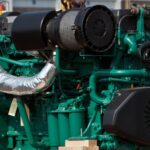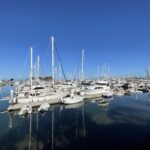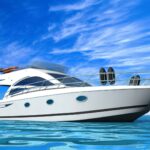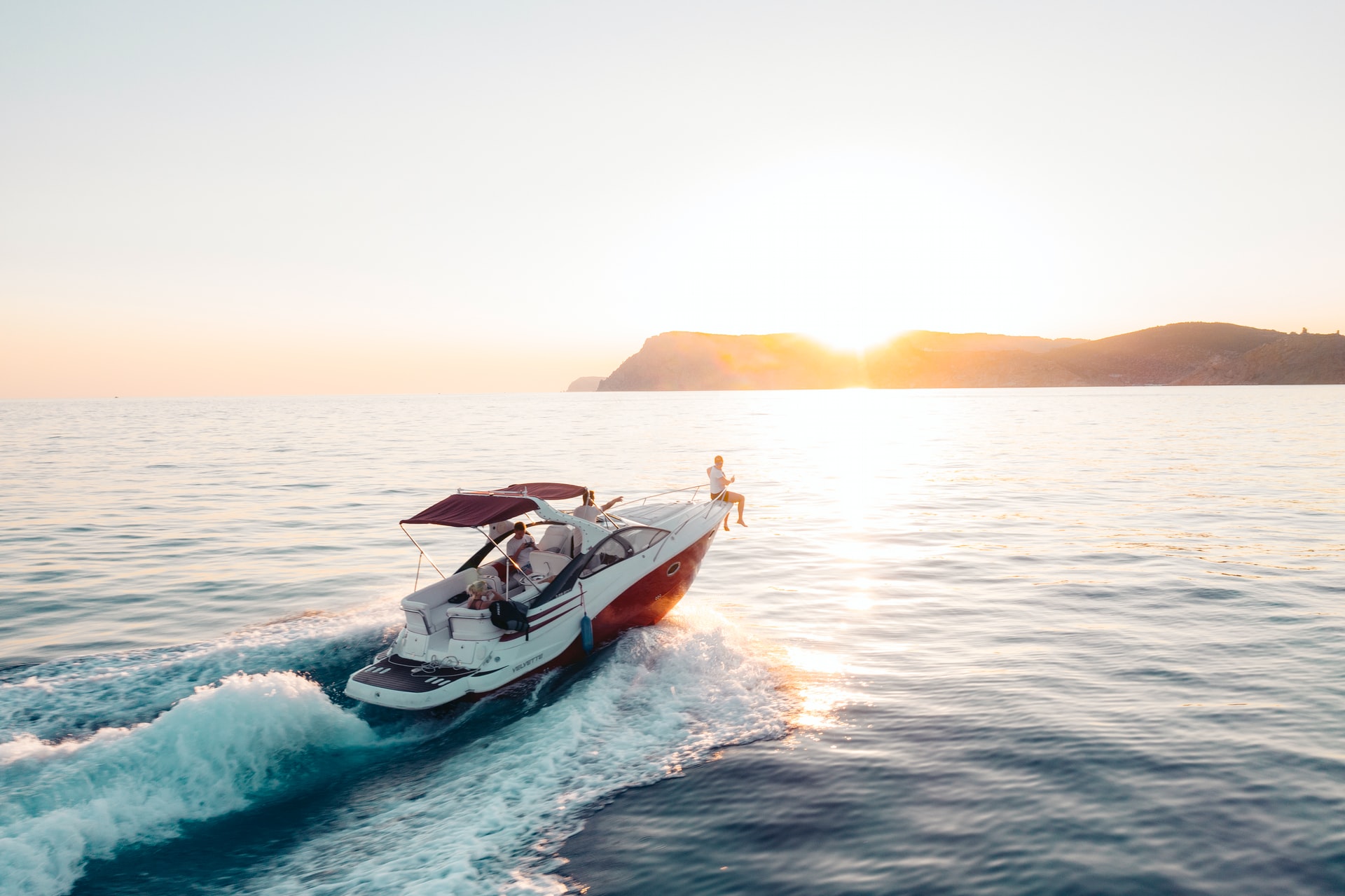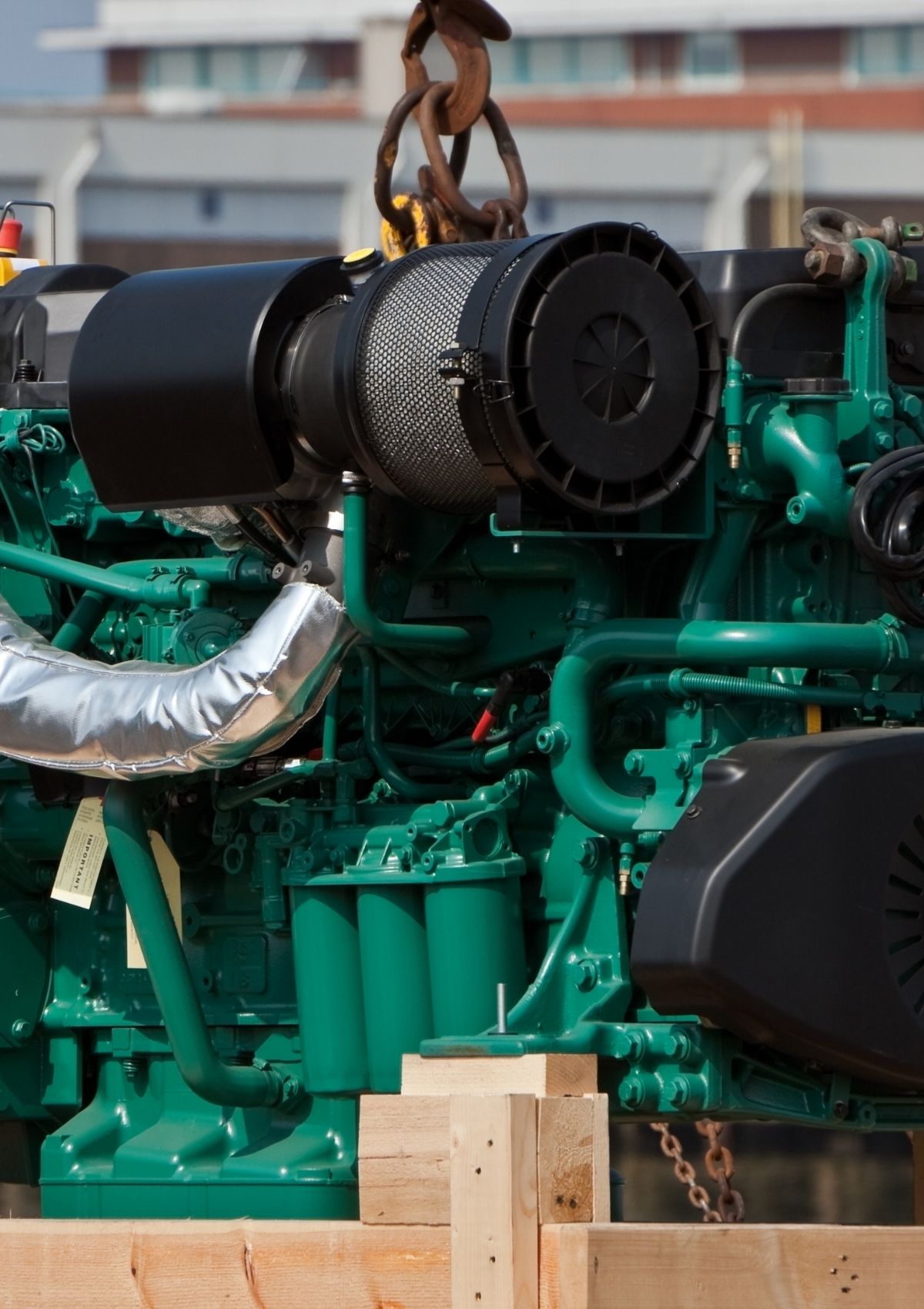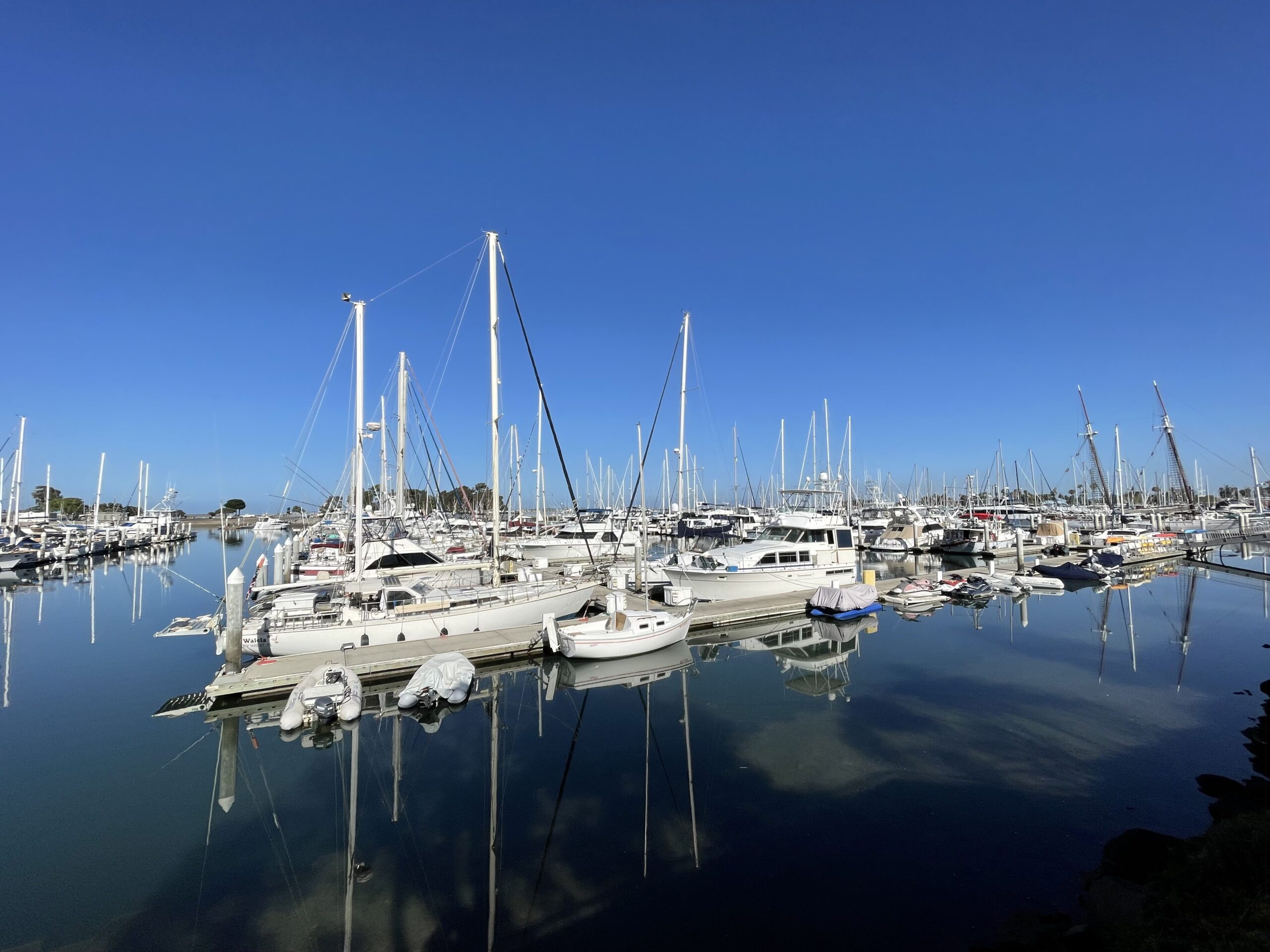To say the truth, naming one engine as ‘the most fuel-efficient’ might be a very difficult task, since new technologies are being created all the time to improve efficiency and comply with the new environment-related regulations. So instead of telling you a brand and model, we believe it’s better to guide you on the journey of finding the perfect match for you and your boat, we will tell you how to make the best choice for you.
But don’t worry. We will give you two options that we think are a good starting point.
How to Find The Most Fuel-Efficient Marine Diesel Engine
How Much Power Will You Need?
There are a few aspects that might lower or increase the horsepower your boat will need:
For starters, weights. A lighter vessel with a heavy engine won’t do well together, even if the engine is considered highly efficient. In this situation, you will need something with fewer horsepower, but that is so because your boat won’t need that much work to start moving. The opposite is also true: The higher the weight, the more power you will need. The use you will give it will also impact the power your vessel will need, and how efficient your diesel engine will actually be.
Maintenance
Time brought many changes in all areas of life. Boating, and what is more, marine diesel engines, are not an exception to this rule.
This means that newer engines will look much more like a car engine: They will be more efficient, yes. But practicing maintenance will also require an expert hand that is qualified to deal with some of these tasks, and that has the necessary equipment to troubleshoot running problems, such as an electronic diagnostic scanner. And if you have this aspect into consideration, making sure that you can find qualified people might also direct the route you’ll take on water while enjoying your boat.
Propulsion System
Propulsion is what is going to make your boat move. You have different options here, and you should know them, to make an appropriate decision based on what your vessel needs.
Waterjet Propulsion System
A waterjet propulsion system uses —you guessed it— jets of water to move the boat. It forces liquid through a nozzle and moves your boat in the opposite direction. This system is ideal for boats in shallow waters: Ski-sport boats, picnic boats, personal watercraft, etc.
Pod Propulsion System
A pod propulsion structure has a pitch propeller that’s linked to the engine through a mechanical link or diesel-electric link.
Pod systems are perfect for large cruisers, semi-displacement trawler yachts, tugboats, and cruise ships. With this type of propulsion system, pods rotate to steer the boat. The pods connect to the inboard engine and project down the hull, so there is no inefficient shaft angle. One of its characteristics is that they have high fuel efficiency.
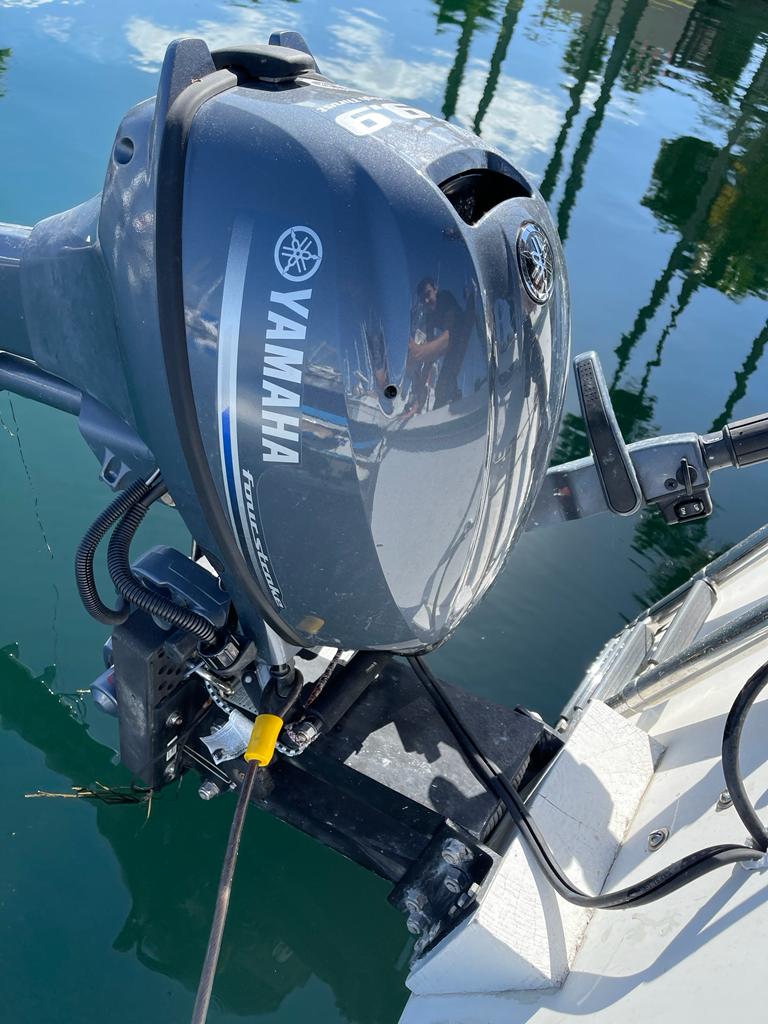
Propeller system
A propeller system is a fan system that converts rotational motion into thrust. Have you watched Titanic? Yes, one of those fans. But don’t worry, they come in different sizes as well.
The fan transmits power via a conversion from rotational motion to thrust. The pressure difference occurs between the forward and rear surfaces of the blades, accelerating the water. There are different types of propeller systems: twin propellers, nozzle-style propellers, controllable-pitch propellers, and contra-rotating propeller systems —Did anyone have Bubba’s shrimp line flashback?. Smaller vessels may have one propeller while larger ones may have up to four or more.
Our Starting Point on Efficient Marine Diesel Engine Recommendations
Yanmar 3JH40
The thing that makes this engine so unique is the common rail injection system. Thanks to better combustion of the diesel fuel, it reduces smoke and odor almost completely. Its 3,000 RPM makes it quieter than other engines, and reduces vibration.
Power: 40hp (29.4 kW)
Cylinders: 3
Displacement: 1,642 cc.
RPM: 3,000
Fuel consumption at max RPM: 8.8 lt/hr
Dry weight: 192 kg
Beta 43
Beta engines use the Kubota block, which makes them easy to maintain and, in comparison to other engines, a more economic option due to all the things it offers. They usually include the alternator, transmission, and motor mounts on their packages, which other engines builders might not offer.
These are well-loved and reliable engines in the boating community, so you can trust them to power up your boat.
Power: 43hp
Cylinders: 4
Displacement: 1,999cc
RPM: 2,800
Fuel consumption at max RPM: 9.3lt/hr
Dry weight: 238kg
Ask a Professional
If you need a hand on picking up the right option for you or even if you want to have a professional opinion on a boat you want to buy, you can call us. We perform an in-depth mechanical inspection of the engine and all its auxiliary systems. Our highly experienced engineers and technicians are prepared to conduct the survey and prepare a detailed report of all that’s working fine and all that requires repair on a given vessel.
Request your free quote by calling us at 619-904-7192, or by filling out the form on our contact page.

